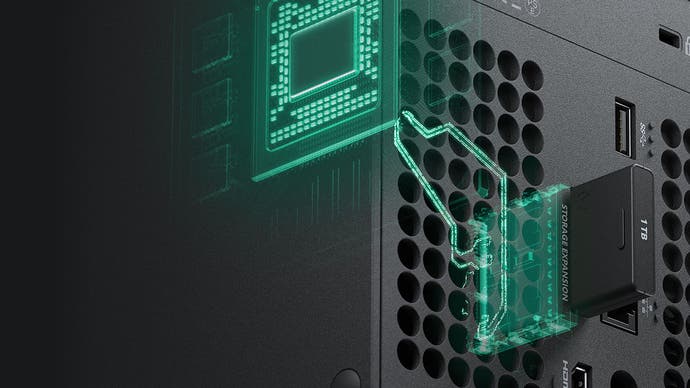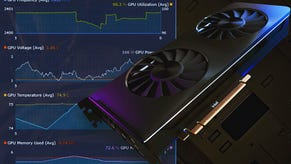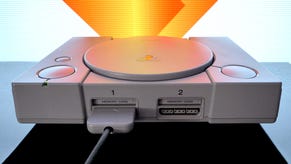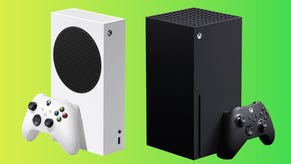DF Weekly: Microsoft should make Xbox Expansion Cards cheaper
There are good reasons for the PS5 SSD price advantage, but that doesn't mean Microsoft is powerless.
Why are Xbox Series X/S expansion drives so much more expensive than PS5 equivalents - and should Microsoft put pressure on its suppliers to drive prices down? That was one question on this week's DF Direct Weekly episode, and one that I'd like to tackle in more depth given that I've spent the last two years charting price changes and sharing deals on PS5 SSDs and Xbox Expansion cards alike.
To sum up the current situation, the PS5 can use regular off-the-shelf PC PCIe 4.0 SSDs for its storage expansion, while the Xbox uses proprietary cards made by Seagate and WD which cost far more for a given size. That's been true for years, but big price drops on PS5-spec drives over the past six months have made the comparison increasingly ludicrous. It's now possible to get a 1TB SSD that's technically PS5-compatible for as little as £35, with higher-grade models at the £55 mark. Meanwhile, 1TB Xbox expansion cards debuted at an eye-watering £220 - and have only dropped to £150 for a 1TB model over the same time period.
Of course, the Xbox solution has its advantages - it's dead easy to buy and install, with only a handful of varieties available with equivalent performance. The Sony solution does require some research - such as a visit to our list of PS5 drive recommendations - and a bit of confidence to take off one of the PS5's wings, unscrew the drive bay, screw in the SSD and replace everything again. It's totally achievable within a few minutes, but it's the sort of thing that you might understandably feel a bit anxious about if you chose a console because you want an easy, plug-and-play experience. On the Xbox side, you just buy the card and push it into the storage expansion port on the back of the console in a few seconds. The ability to move games from console to console in a matter of seconds is also pretty neat - and incredibly useful for our work, as it allows us to quickly compare games on both Series X and Series S.
- 00:00:00 Introduction
- 00:01:20 News 01: Gamescom: what to expect!
- 00:19:07 News 02: Intel update: Arc DX11 driver, PresentMon Benchmarking
- 00:39:28 News 03: Xbox 360 store shutting down
- 00:51:35 News 04: Immortals of Aveum tech interview
- 01:00:52 News 05: Bomb Rush Cyberfunk launches
- 01:08:36 Should we expect most UE5 titles to struggle with performance? And are upsampling technologies just a crutch in lieu of optimisation?
- 01:23:40 Are you pleased or dissatisfied that the rumoured RTX 4090 Ti may not be getting a release?
- 01:27:26 Could path tracing be beneficial for highly stylised games?
- 01:31:25 The end of the year will be loaded with titles, so how are you planning to keep up?
- 01:35:55 There's a wide price difference between Microsoft's Xbox storage cards and regular SSDs. Should Microsoft try to lower their prices?
- 01:40:03 Would moving gaming towards a single platform be beneficial for the industry?
- 01:44:54 What are the best phrases to use for a Digital Foundry drinking game?
Unfortunately, the big advantages of the Xbox approach - that unique form factor and a short list of official drives - also mean that the drives necessarily cost more than their PlayStation counterparts in a capitalist market. That's a real shame for owners of Xbox Series consoles, but Microsoft could try to make it a bit better - and there are a few options here.
The most obvious solution is that Microsoft subsidises these drives more aggressively, whether by instituting a (temporary) price cut or by bundling the drives with a significant amount of Game Pass, more than the one month that is currently included. Even if achieving value parity with PlayStation is out of reach, making some attempt to rebalance the calculus would mean a lot, I think.
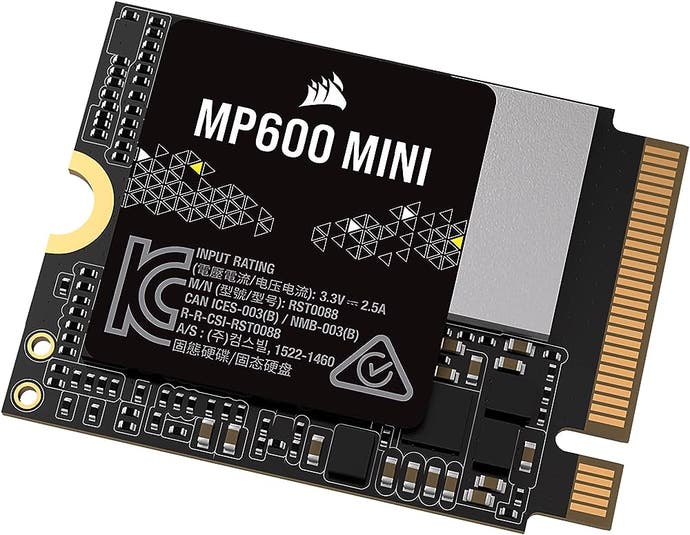
Another, less obvious solution is increasing the number of companies that can make the drives, decreasing these companies' margins but allowing competition to drive prices down. The technicalities of this are beyond the scope of this blog, but you could imagine different companies providing different flash memory and controller combinations while using the same CFe connector, tested by Microsoft and whitelisted for use on the Xbox. Another option could be Microsoft creating an official adapter that allows consumers to plug in their own PCIe 4.0 SSDs to Series consoles with the proviso that drives of a certain quality are required for an optimum experience, perhaps in the same 2230 form factor as Steam Deck SSDs.
The danger here for Microsoft is that customers choose the PS5 over the Series X/S due to the cost of the expansion drives, or even just choose to buy more games from the PlayStation ecosystem if they have access to both systems. As John points out in the Direct, proprietary memory cards played some part in the death of the Vita as a system - and even if Xbox sales are healthy, the cost of pushing Xbox expansion card prices down may be less than losing out on these extra hardware and games sales. Still, it's a thorny issue and I'm curious to hear other ideas about how the situation could be improved!
Beyond the Xbox vs PS5 storage discussion, this week's DF Direct offers a Gamescom 2023 preview, with John, Alex and Rich all set to visit the show floor, plus some early impressions of Intel's recent Arc graphics card DX11 driver improvements and its new PresentMon benchmarking tool. We also covered the Xbox 360 store shutdown news and what it means for game collectors, our upcoming tech interview with the developers of Immortals of Aveum and the launch of Jet-Set-Radio-style game Bomb Rush Cyberfunk.
This week's Direct is also host to some fascinating questions from the DF Direct supporters club - including whether Unreal Engine 5 titles are destined to be performance-killers on current console and PC hardware; whether path-tracing is a good fit even for games with highly stylised art direction; and would gaming moving towards a single platform (rather than being divided between multiple consoles) be beneficial for the industry as a whole?
And perhaps most critically, what are the best phrases to use in a Digital Foundry drinking game? The bespoke and full-fat answer to this question, complete with frame-rate and frame-time delivery metrics, is available for your viewing with complementary path tracing via the video embed above.
